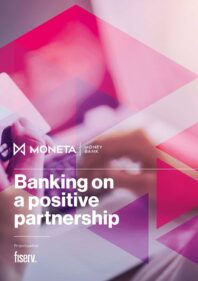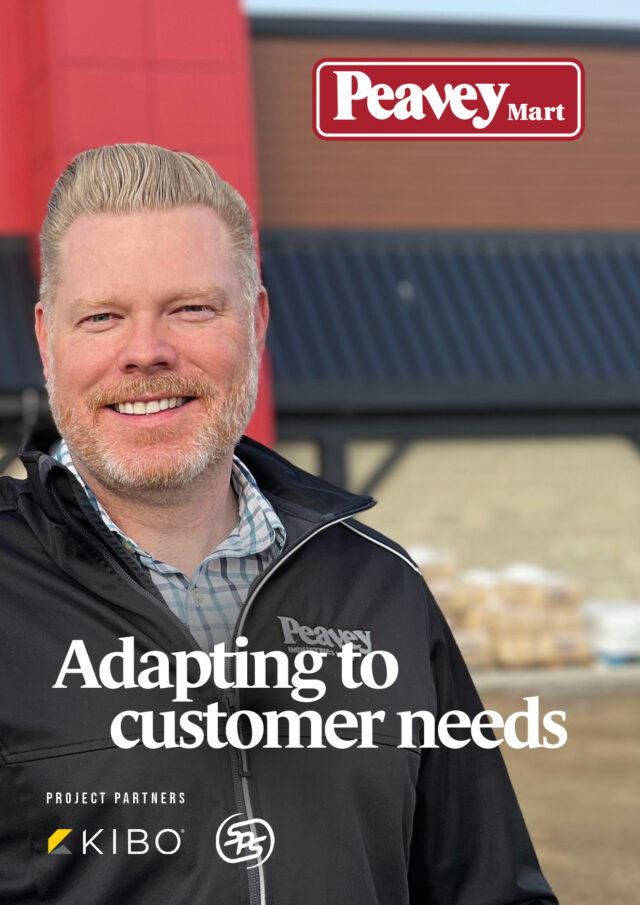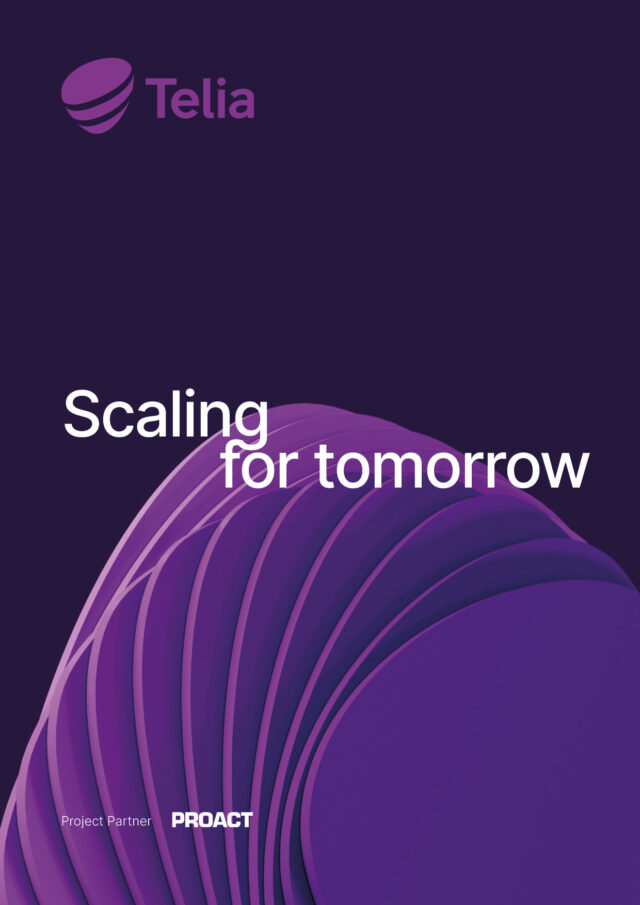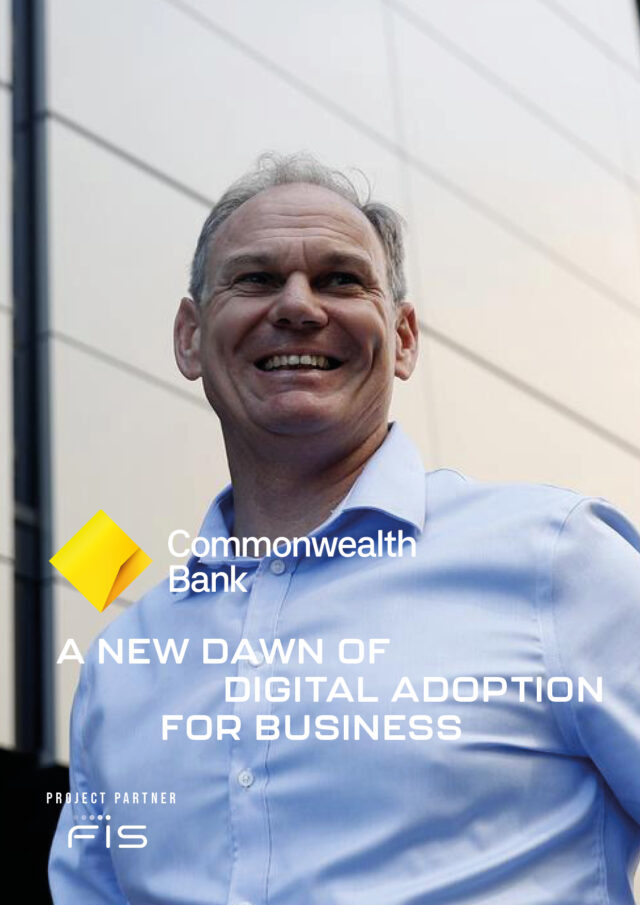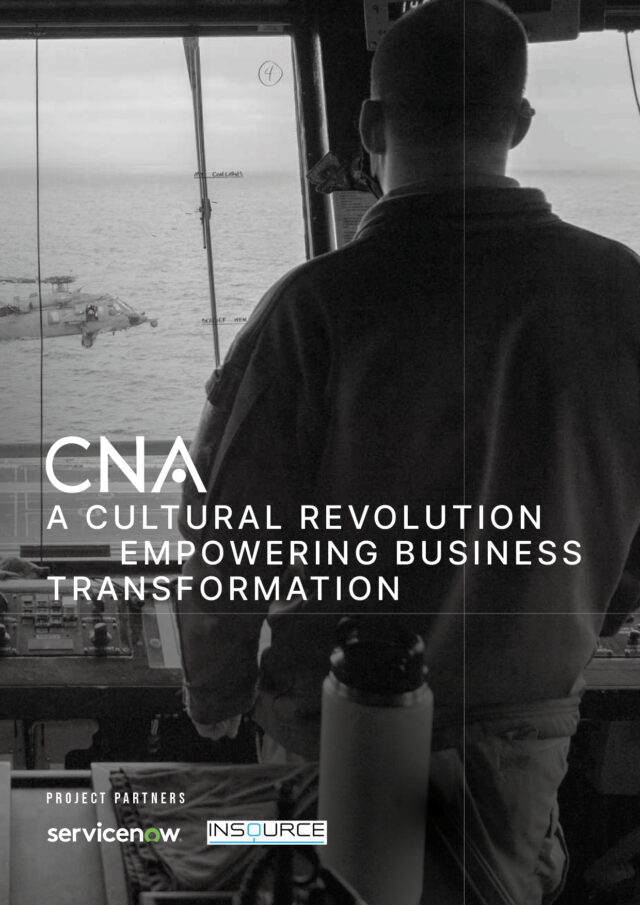The past six months has been a time of change for us all, but the digital banking sector has experienced an unexpected shove in the direction it was already moving in. Lockdowns all over the world meant businesses remained shut for weeks or months, taking all exchanges of money online, and even now, many bricks-and-mortar businesses which have since reopened aren’t accepting cash. Banks and digital financial services have been able to reap the benefits of this, and forge ahead with their own plans for improvement and expansion when many others have had to press pause. Now, with the business world beginning to see the light at the end of the tunnel, banks are actually thriving; this is certainly the case for Moneta Money Bank, a trailblazer in the market. We spoke with CIO, Jiri Mizera, about the company’s digital transformation, and its collaboration with Fiserv which has helped it to stay on course during a pandemic.

Moneta is the fourth largest bank in the Czech Republic in terms of number of clients, serving around one 1,500,000 retail customers, as well as 10,000 small businesses and entrepreneurs. Formerly GE Money Bank, Moneta went IPO in 2016, and its main goal was to become a digital innovator in the Czech market – something it has certainly achieved. Now, it provides extensive digital program and job transformation information, and was the first bank to introduce current accounts online in the region back in 2017. Moneta is deeply focused on digital strategy and the ongoing improvement of the bank of the future, in its own right; currently, it’s full steam ahead with creating refinancing and mortgage services online – basically, almost all of the products in its portfolio can be offered either fully online, or as a hybrid digital/physical service.
Moneta has tackled digital transformation in the most successful way it knows how – it started with a vision of what it wanted to deliver, and set up strategic goals to achieve that, tackling challenges as they appeared. It was never a case of just hoping that positive results would come to the business; the strategy is continuously being updated, and the though process is always ‘what do we want to achieve?’, followed by ‘how can we enable that?’.
Mizera himself joined Moneta in 2017 as the Head of Commercial Digital Banking. For almost two years, he worked closely with entrepreneur clients, mostly, and implemented business unsecured loan, overdraft and credit card services, fully online, for both existing and new Moneta customers. “It was very appreciated by them,” says Mizera, humbly. “When that project was finished, it was agreed that I’d be promoted to Chief Strategic Change Officer. ” In March this year, Mizera was promoted once again, to CIO.
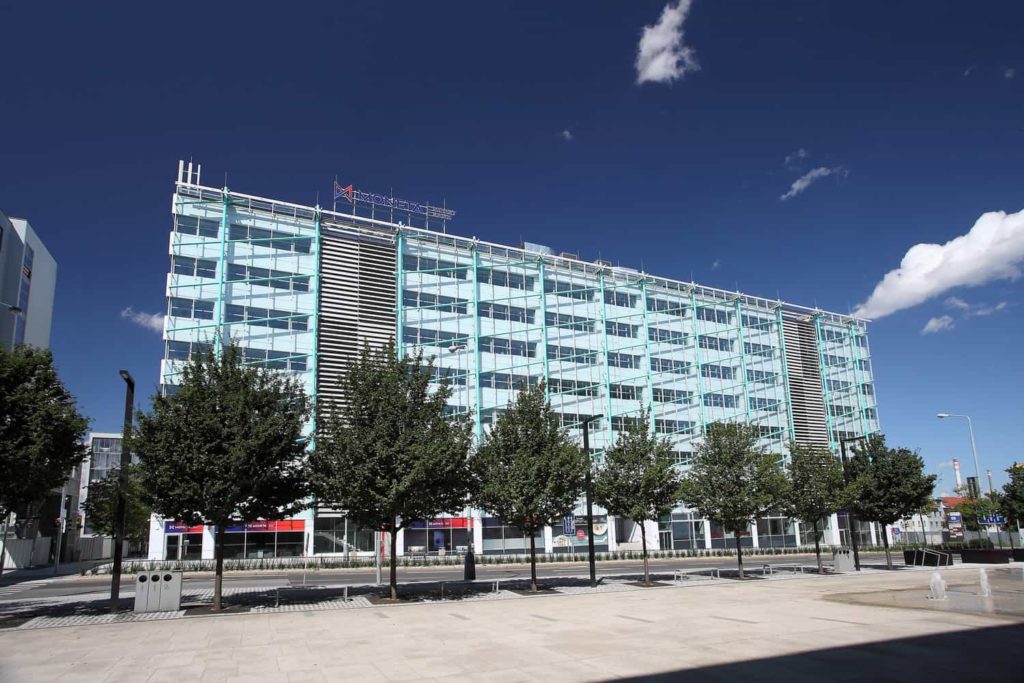
A sustainable outlook
The biggest task in the last two years, for Mizera, has been the implementation of a new card management system platform for all cards related operations, with Fiserv as partner. Moneta is an early adopter of top-tier technologies such as ApplePay or GooglePay; meanwhile, the Czech Republic is one of the leading countries in e-shop penetrations and contactless payments usage. Therefore, the shift has been a huge challenge.
Moneta uses something called a multi-card solution, which means it moves all of its processing into the Fiserv data centre, integrated with Amazon Web Services cloud, where Moneta is moving the majority of its operations, providing something close to software-as-a-service. “With that approach, we have reduced our running costs dramatically,” Mizera explains. “It also allows us a great platform with all the advantages of other banks who use the same platform.” He admits that this wasn’t his own idea – it was down to the board of directors, especially the CEO – but it feeds into Mizera’s future-orientated vision for Moneta. “Sharing an infrastructure with top-tier banks across the globe is really big thing for us, and, overall, reduction of costs between banks is quite innovative. When Fiserv explained whole concept, we were definitely in”
That future-orientated outlook extends beyond the internal workings of Moneta and into the way it physically operates. Interestingly for a bank, it is the company with the biggest electric car fleet in the country – around 70 cars. “The decision behind that was mainly to do with sustainability,” Mizera says. “Cost comes into it too, but the sustainability aspect is resonating across Europe, so it’s a wise solution for the environment.”
Interest in electric cars (EVs) as been mounting, in the Czech Republic, but they’re far from an everyday sight on the road. According to Delta-EE.com, the country only has three EVs per 10,000 people; in France and Germany, it’s three per 1,000 people. One of the major issues is that there aren’t enough charging points across the country, so despite the interest of civilians and businesses, it’s not a viable choice for many. This is where innovators like Moneta come in – the company has made the choice to use electric vehicles for the sake of the environment, which is precisely the kind of bold move which makes broader change and will push those in charge to install more charging points, thus pushing the EV market in the Czech Republic and allowing it to catch up with the rest of Europe in its adoption.

It’s this attitude which has helped cement Moneta as the most digitally-advanced, forward-thinking bank. “We are very customer-centric, which is proven by our rankings,” Mizera says. “We really tackled our digital transformation from a positive angle, with the goal of delivering something, and set up a strategy to achieve that. That strategy is regularly updated, made possible by how agile we are as a business.”
The impact of COVID-19
Of course, a digital transformation never really ends – it just continues to evolve. At the beginning of this year, before COVID-19 became something that changed all of our lives dramatically, Moneta had a strong, clear road map in mind; when the pandemic hit, surprisingly – and impressively – little of that changed. “Strategically, the plan remained very much the same,” says Mizera. “It was just the agile way of working that changed – for the better – led by customer feedback. We were able to implement the support of government guarantees, thanks to our drive towards agile working, and we achieved amazing market share of 15% – more than double our usual market share, which is roughly six per cent.”
Moneta’s success during COVID-19 doesn’t end there; its partnership with Fiserv allowed Moneta to implement its FirstVision migration – its move to the cloud, as touched on earlier – even during this global crisis. “It was something we chose as one of our strategic priorities,” explains Mizera. “The change itself has been huge, for several reasons. Firstly, there were more than 28,000 mendays on call, and more than 200 people – during peak times – which, of course, is pretty challenging. We were delivering whole solution impacting 28+ of banking systems around nine agile teams delivering integrated demos, every six weeks. I believe that was one of the reasons why the implementation was successful, because we were always able to deploy, on time, a workable solution. That was a good experience.”
There were challenges, of course, but Moneta foresaw these, and set up the window for migration a long tine in advance. Another boon was that Fiserv has huge experience in transformations such as these, and helped Moneta to run, essentially, dress rehearsals – four training sessions in preparation for the migration weekend – for the teams. There were, in Mizera’s words, “a thousand tasks which needed to be done” between Friday evening and Monday morning, but the company and its trusted partner achieved what it wanted to achieve.
“I have to give credit to everyone involved – we all agreed that it was almost unbelievable that we managed that integration in given conditions,” Mizera says. “The pandemic added a lot of pressure, and we didn’t know how the situation was going to go, but we needed to support our clients. Obviously, we decided to go ahead with the migration but run it completely off-site – which, I believe, was a first for Fiserv. After my son’s birth, it was definitely the most challenging time of my life! But it was really successful, and it has been an honour to work with the professionals at Fiserv and the whole team. It was really ‘fire of our life’ as my boss Albert Van Veen once said.”

The results
Post-implementation, FirstVision has proven stable – a primary concern after a huge implementation. After watching the new system closely for the first few months, everything has worked out smoothly, and Moneta continues to receive strong support from Fiserv. As an added bonus, Moneta is already seeing the financial benefits of having made this change, and will continue to do so – after all, the push towards digital banking has only been accelerated by COVID-19.
“Going digital has created a huge change in the target operating model, and in customer behaviour,” says Mizera. “Even in the Czech market, we had a lot of new banks, in the past, who were able to offer, for example, current accounts online but they couldn’t be fully online because the digital signature was not accepted. A lot has changed, more recently, because we’re able to sign contracts digitally and accept much more advanced credit scoring. And, of course, when you consider how COVID-19 has pushed remote approvals, that has definitely changed customer nature. We have a huge online portfolio, now, so we’re entirely ready for the continued change in customer needs.
“This transformation isn’t finished – it won’t ever be – and we’re always adjusting to what the customers need according to their feedback. We take that feedback very seriously, and this is why I believe we will continue to be successful in the future.”
